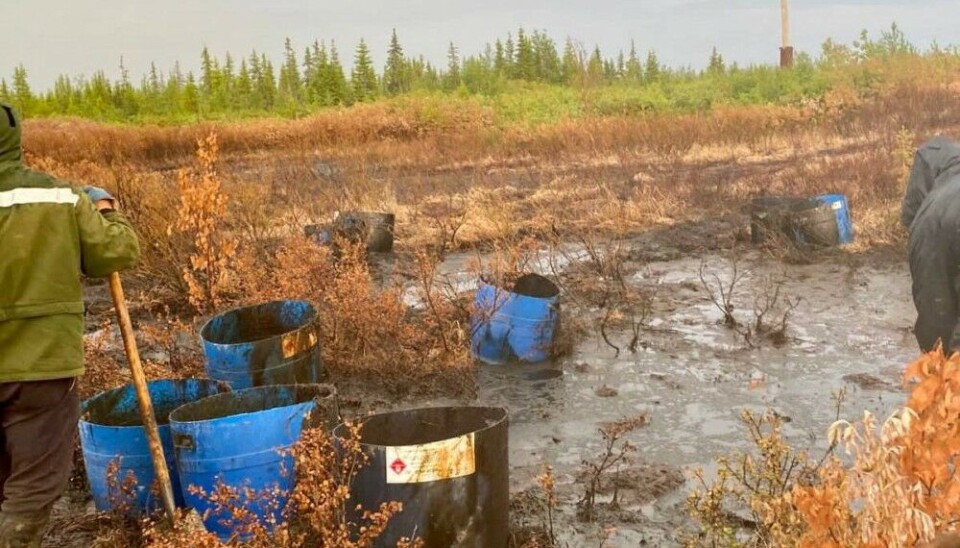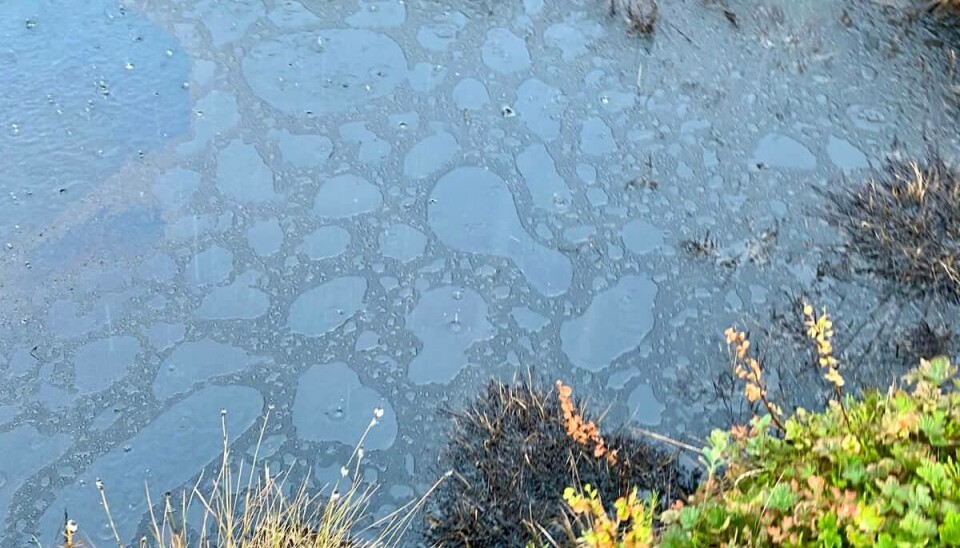
Oil company tried to cover up large Arctic oil spill
An estimated 1,000 tons of oil has leaked into nature after a pipe burst next to the Kolva River in the Usinsk district of the Komi Republic in northern Russia.
“This is a big damage to the environment,” writes Svetlana Radionova, head of the Rospotrebnadzor on her Telegram channel. The agency is Russia’s Federal Service for Surveillance on Consumer Rights Protection and Human Wellbeing.
According to calculations, about 1,000 tons of oil has leaked out, contaminating swamps near the pipeline. Radionova says she fears the oil could eventually leak out to the Kolva River, a side river to the larger Pechora River that flows into the Barents Sea further north.
The pipeline is operated by Nobel Oil, a small Russian oil company established in 2009.
Svetlana Radionova is not at all happy with how Nobel Oil handled the leak and says they tried to hide what happened.
“The Nobel Oil company did not provide us with information and stated that they were conducting an exercise. We learned about the burst from the public and the local Ministry of Natural Resources,” she says.
After Vladimir Putin came to power in 2000, Russia’s Federal environmental watchdog, the Roskompriroda, was shut down and nature protection responsibility was transferred to the Ministry of Natural Resources, the same ministry which is in charge of granting licenses to explore oil, gas and other minerals.
“A regime of High Readiness is introduced in the Usinsk region,” the authorities of the Komi Republic informs after the leak became public on Sunday, July 2.
18 people in a task force are now working to eliminate the consequences of the oil spill. Photos provided from the area show how difficult it is to collect the oil as it is already contaminating swamps and spread further by small creeks in the area.

An investigation is launched by the prosecutor’s office to find out the circumstances and causes of the accident, Syktyvkar-based newspaper Pro Gorod reports. Officials from the prosecutor’s office went to the spill area on Monday.
Bad record of spills
The Kolva River is infamous for several large oil spills, including the 1994 accident when roughly 60,000 tons of oil leaked out after a pipeline break. The oil spill is listed as one of the top 10 worst spills worldwide.
In 2021, an environmental emergency was declared after another spill into the river near Usinsk caused by a pipeline leak from the Lukoil-operated Oshskoye field, the Barents Observer reported.
In October 2022, a leak of 100 cubic meters of oil was spilled from the Transneft-North pipeline in the Knyazhpogostsky district, Sever.Realii newsonline reported. In March this year, some 700 square meters of land were contaminated after an oil leak from the Yarega-Ukhta oil refinery, also that in the Komi Republic.
All major eco-groups kicked out
Russian authorities have over the last few months put a final end to the country’s non-governmental environmental groups.
In April, the Bellona Foundation was declared an “Undesirable Organization” by the Prosecutor General’s Office in Moscow, claiming the environmental group’s activities were aimed at undermining Russia’s economy and posed a threat to the constitutional order and security. Bellona was one of many eco-groups working to document the consequences of the infamous 1994 oil spill in Usinsk.
In mid-May, Greenpeace got the same “Undesirable” branding as Bellona. For Greenpeace, the Procurator General added “…. Greenpeace’s environmental activities are actually accompanied by an active promotion of a political position, attempts to interfere in the internal affairs of the state and are aimed at undermining its economic foundations.”
The last environmental organization to be branded “Undesirable” was WWF in the last week of June. According to the Russian government authority, the WWF has a political agenda aimed at hindering Russian industrial development in the Arctic.
“The so-called environmental and eco-educational activity that is conducted under the auspices of British national N. Isdell is used by the WWF as a cover for developing projects that pose a threat to [our] economic security,” a statement from the Prosecutor’s office reads.
You can help us…
…. we hope you enjoyed reading this article. Unlike many others, the Barents Observer has no paywall. We want to keep our journalism open to everyone, including to our Russian readers. The Barents Observer is a journalist-owned non-profit newspaper. It takes a lot of hard work and money to produce. But, we strongly believe our bilingual reporting makes a difference in the north. We therefore got a small favor to ask; make a contribution to our work.














